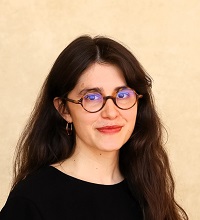Lunch seminar with Greta Spano
The interpretation of autonomous concepts of EU law. A corpus linguistic analysis of the case-law of the ECJ on the terms habitual residence and worker
’Law is a linguistic phenomenon’ (Guastini, 2006). This sentence has a particular relevance in the European legal order, since the law is promulgated in 24 official versions. In this system, the Court of Justice of the European Union interprets new terms, which are independent from both any national and international meaning, the so-called autonomous concepts. This new terminology, representing legal concepts specific to the European system, is translated in all official languages and will be, in turn, interpreted by domestic judges. The effects of a national interpretation of autonomous concepts could be disruptive: a non-technical term could be seen as too vague, leaving too much room for a wider - and maybe contradicting - interpretation; on the other hand, the choice of a term too specific and close, if not identical, to the term used in one Member State could create a semantic overlapping and interpretive confusion. In this multi-level and multilingual context, two questions arise: How does the Court of Justice interpret autonomous concepts of EU law? To what extent autonomous concepts of EU law have an impact on the Italian and French national legal terminology?
The aim of this research is to illustrate the creation and circulation of autonomous concepts of European Union law, interpreted as such before the Court of Justice to the national legal system, to create a wider framework based on the analysis of a number of autonomous concepts.
Particularly, this presentation investigates the linguistic side of harmonisation of the concepts of habitual residence and worker, with an interdisciplinary approach, in order to understand, on one hand, if there has been an evolution of such concepts at the European level, and, on the other hand, if these autonomous concepts had an impact on the Italian and French counterparts, and if so, what are the implications that such impact have on the national perspective. The approach through which this research will be presented is the linguistic analysis of a corpus of judgments of the ECJ in three language versions (French, Italian and English), employing Sketch Engine as a text analysis tool.
The relevant data for corpus analysis is gathered from the case-law of the Court of Justice, as well as the Italian and French case-law on a selected set of autonomous concepts. The analysis, in fact, will mainly focus on interpretive texts. Through the linguistic analysis of corpora, this examination has the purpose, at the European level, to describe the evolution of the autonomous interpretation before the Court of Justice and, at the national level, to outline the implementation process. Therefore, from the observation of language in case-law, this analysis will formulate a hypothesis on how autonomous concepts are interpreted and in which way they circulate in the Member States. To this end, this analysis of case-law will investigate firstly, the creation of such concepts at the European level; secondly, the interpretation before the Court of Justice of habitual residence and worker as autonomous concepts of the European union and the evolution of its judicial reasoning; thirdly, the impact (if any) that these autonomous concepts had on the French and Italian legal systems.
Speaker bio
 Greta Spanò is a fourth-year PhD researcher in law at the European University Institute (EUI, Florence). In 2018, she obtained a double degree in Italian and French law at Université Paris 1 Panthéon-Sorbonne and Università degli Studi di Firenze; she also obtained a master’s degree in legal translation at ISIT Paris (2019) and a LLM in Comparative, European and International Laws at the EUI (2020). Prior to her PhD, she worked as a trainee at the comparative unit of the Conseil constitutionnel and at the Court of Justice of European Union.
Greta Spanò is a fourth-year PhD researcher in law at the European University Institute (EUI, Florence). In 2018, she obtained a double degree in Italian and French law at Université Paris 1 Panthéon-Sorbonne and Università degli Studi di Firenze; she also obtained a master’s degree in legal translation at ISIT Paris (2019) and a LLM in Comparative, European and International Laws at the EUI (2020). Prior to her PhD, she worked as a trainee at the comparative unit of the Conseil constitutionnel and at the Court of Justice of European Union.
Her main interests include the fields of legal history, comparative law, legal translation, and the Court of Justice of the European Union. Particularly, her research at the EUI concerns the autonomous interpretation of concepts by the Court of Justice of the European Union and the implementation on Member States’ courts (France and Italy), with a comparative legal-linguistic perspective. During her research stay at iCourts, she will focus on the theoretical aspects of the autonomous interpretation as well as the corpus linguistic analysis of judgments of the ECJ.
Meeting ID: 650 9493 2055
Passcode: 299494
